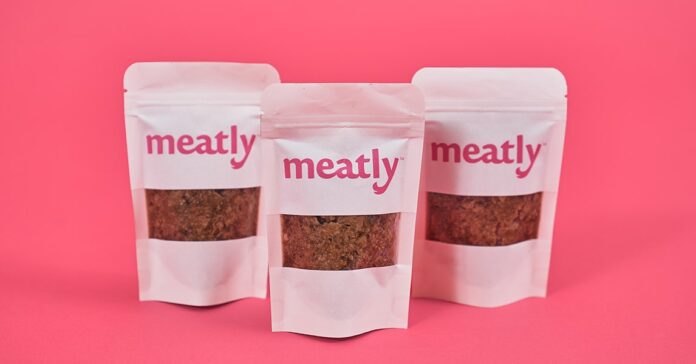In a laboratory in west London, Helder Cruz reaches right into a refrigerator and takes out a small plastic bathtub. The container holds 280 grams of an off-white paste with the consistency of pâté. Those are actual hen cells, taken from a fertilized hen egg and painstakingly grown within the bioreactors reverse.
The paste does no longer glance specifically appetizing, however I’m really not the objective target market. Those cells are meant as a slaughter-free element for dog food, and the corporate rising them, Meatly, has simply been authorized via UK regulators to supply its hen cells for dog food. It’s the primary approval of a lab-grown dog food element any place on the planet.
The approval was once granted via the Animal & Plant Well being Company (APHA) on July 2. In the United Kingdom, cultivated animal cells meant to be used in dog food are categorized as an animal byproduct. The approval lets in Meatly to promote its hen cells to authorized dog food producers as an element.
“We’ve been very proactive in attractive the regulators. We wish to be very clear, we wish to deliver everybody in this adventure,” says Meatly CEO Owen Ensor. He says that the startup has already shipped a few of its hen cells to dog food producers so they may be able to run their very own dietary checks and trial other formulations of dog food made the use of Meatly’s cells as an element.
Ensor says the primary dog food to comprise Meatly cells will probably be pet food, and that it could be on UK cabinets ahead of the tip of the yr, however that liberating merchandise isn’t a large precedence for the corporate at this time. “What must get achieved is value aid and scale-up,” he says, “Even supposing, liberating merchandise turns out to be useful, so we get comments from shoppers.”
All the cultivated meat trade remains to be minuscule in comparison to the trillion-dollar meat trade, and cultivated dog food is a distinct segment inside of a distinct segment with some distinctive demanding situations. Brewing animal cells in bioreactors remains to be extraordinarily dear, largely as a result of the finely balanced brew of proteins and vitamins that the cells wish to develop. And because meat that is going into dog food is so much inexpensive than meat for people, the price of cultivated meat must dramatically drop till it’s a viable alternative dog food.
There are a couple of tactics Meatly is making an attempt to chop prices. Leader clinical officer Helder Cruz says that any finish product may well be composed of as low as 4 or 5 p.c animal cells combined with cereals and different plant-based components, as maximum canine meals available on the market already mix actual meat with a hefty portion of inexpensive filler components. The corporate may be seeking to cut back manufacturing prices via changing one of the dear proteins within the liquid used to develop cells with small molecules from inexpensive assets.
The cells that finally end up in Meatly’s hen pâté got here from commercially to be had cells sourced from a fertilized hen egg. The cells are spontaneously immortalized, because of this that they have got the capability to replicate indefinitely, in contrast to non-immortalized cells, which forestall rising after a definite selection of duplications.
“One among our philosophies is to be very centered and really speedy,” says Ensor. That suggests simplifying the manufacturing via beginning with off-the-shelf mobile traces, and focusing most commonly on hen fairly than attempting a lot of other species. “The fewer we do, the extra we will development on that function.”
There are a handful of businesses seeking to make cultivated dog food. Austrian corporate BioCraft Puppy Diet is making cultivated mouse meat, whilst Czech company Bene Meat Applied sciences has produced some samples of its cultivated meat for dog food. However those startups have raised tiny quantities in comparison to the corporations hoping to commercialize cultivated meat for people.
“What’s maximum spectacular is that no longer most effective did Meatly obtain the primary approval, however it additionally were given there in most effective two years and with simply £3.5 million [$4.55 million]” in funding, says Anthony Chow, cofounder of Agronomics, an early investor in Meatly.
In step with Ensor, the completed element is recently costing “double figures” in kilos sterling in keeping with kilo, however this is ahead of it’s combined with different components in dog food. “It’ll be a top rate product, for the reason that costs are nonetheless prime,” he says.





 #shorts #shortsfeed #nature #youtubeshorts #iciness
#shorts #shortsfeed #nature #youtubeshorts #iciness